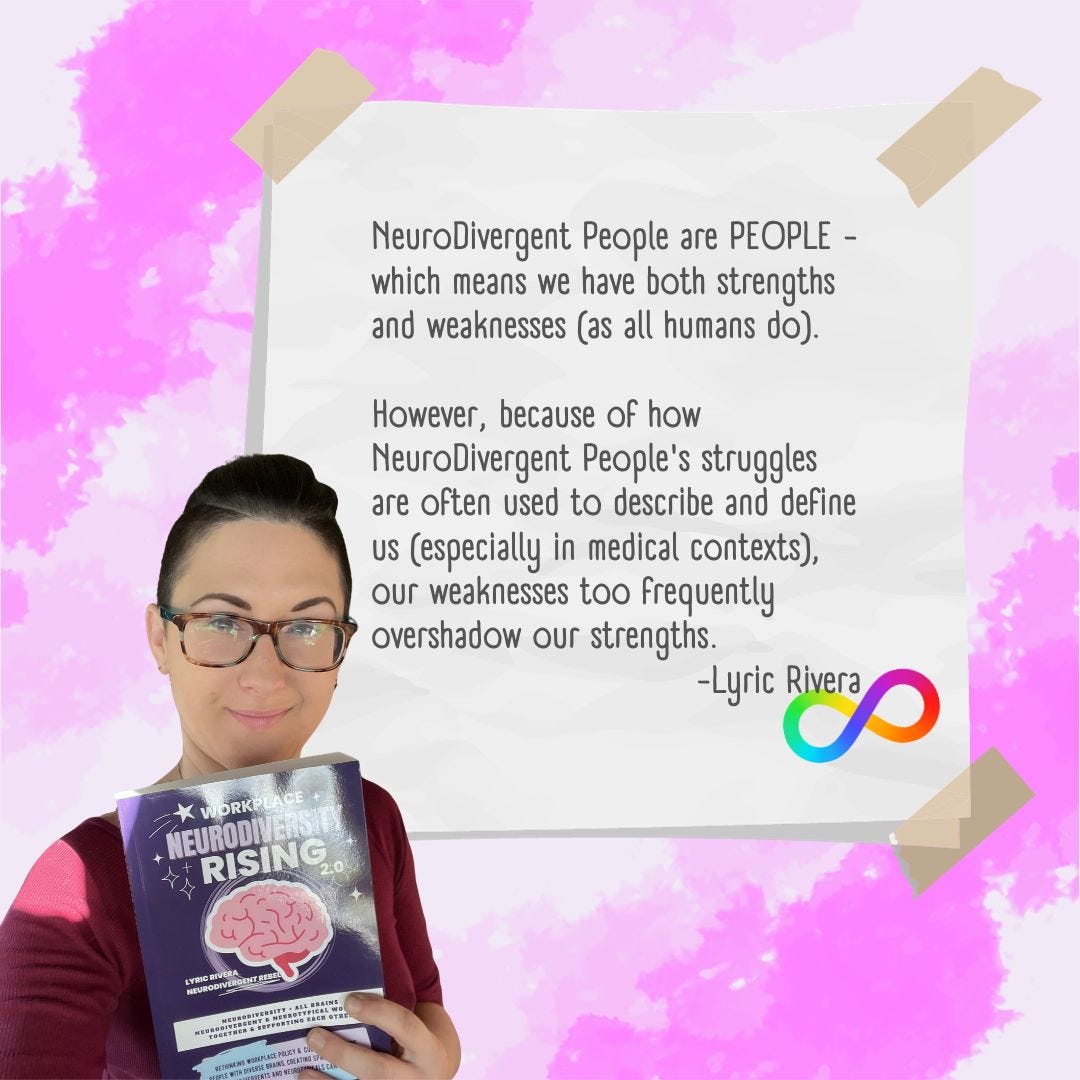10 Strengths of NeuroDivergent People (That May Surprise You)
Due to how NeuroDivergent People's struggles are often used to describe and define us (especially in medical contexts), our weaknesses too frequently overshadow our strengths.

NeuroDivergent People are PEOPLE - which means we have both strengths and weaknesses (as all humans do). However, because of how NeuroDivergent People's struggles are often used to describe and define us (especially in medical contexts), our weaknesses too frequently overshadow our strengths.
If I were allowed input in the DSM criteria for the NeuroDivergent brain types (or NeuroTypes) I carry, my definitions for what I experience would be much different from the current criteria (that only lists deficits) because I would insist on defining NeuroDivergent People in a more balanced way.
With Autism, for example, in the DSM V, we are described as having "highly restricted, fixated interests that are abnormal in intensity or focus" and having "excessively circumscribed or perseverative interests." - They say that like it's a bad thing!
First "abnormal" compared to WHO? This type of focus, while out of reach for many non-autistic people, is perfectly normal for Autistic People.
Autistic People often have intense interests in specific areas, which can lead us to be specialists or experts in our field due to our dedication to a particular, often highly specialized, topic (that may be all we talk or think about).
I've written about Monotropism in the past (link to that post HERE).
Monotropism is a person's tendency to focus their attention on a small number of interests at any time, tending to miss things outside of this attention tunnel. This cognitive strategy is posited to be the central underlying feature of Autism.
Monotropism isn't "good" or "bad". It's simply part of who I am as an Autistic Person - though medical descriptions of Autism would have you viewing this cognitive strategy through a lens that is skewed heavily toward the negative.
My narrow focus (and difficulty steering it) does cause problems in my life and relationships (especially if I am focused on something that I don't want to focus on or if I focus on something I can't help or change).
I can't let things go.
Once an idea or a question pops into my mind, it is challenging (if not impossible) for me to steer my mind in another direction.
This inability to let things go may be one of my most significant weaknesses... but it's also one of my biggest strengths.
Paid subscribers have access to the full post as a thanks for supporting my work.
Keep reading with a 7-day free trial
Subscribe to NeuroDivergent Rebel’s Substack to keep reading this post and get 7 days of free access to the full post archives.



